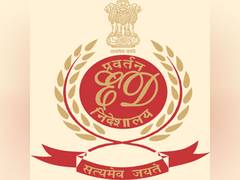Use of modern tech by EC in electoral process example for all democracies: President Murmu
New Delhi, Jan 25 (PTI) President Droupadi Murmu on Thursday said the use of modern technology by the Election Commission in the electoral process is an example for all the democracies of the world and hoped that its use will be enhanced in the future.
She also appreciated the efforts of the poll panel in ensuring inclusive elections by enhancing the participation of women, persons with disabilities and vulnerable groups.
The president was addressing the 14th National Voters’ Day event here. The Election Commission was established on January 25, 1950, a day before India became a republic. For the last 14 years, the EC’s establishment day is observed as National Voters’ Day.
In the last 75 years, Murmu noted, the poll authority has organised 17 Lok Sabha elections and over 400 assembly elections.
Describing the process of holding Lok Sabha elections as the biggest logistics exercise in the world, she noted that people voted in over 12 lakh polling stations with exercise being managed by 1.5 crore polling personnel.
The president also referred to the efforts undertaken by the Election Commission in ensuring that no voter is left behind.
To mark the occasion, the first copy of the EC’s publication “ECI initiatives for General Elections 2024” was presented to President Murmu by Chief Election Commissioner Rajiv Kumar.
The book provides a comprehensive overview of the initiatives undertaken by each division of the EC to ensure free, fair, inclusive, accessible and participatory conduct of elections.
A short voter awareness film My Vote My Duty’ produced by the ECI in association with filmmaker Raj Kumar Hirani was also screened.
The short film features several celebrities with their messages evoking the spirit of democracy and power of one vote.
In his address, Law Minister Arjun Ram Meghwal credited B R Ambedkar for ensuring that women are allowed to vote in elections.
He said Ambedkar flagged the issue of women’s right to vote as back as 1928.
Meghwal said during Constituent Assembly debates, Ambedkar pitched for the principle of ‘one vote, one person, one value’.






